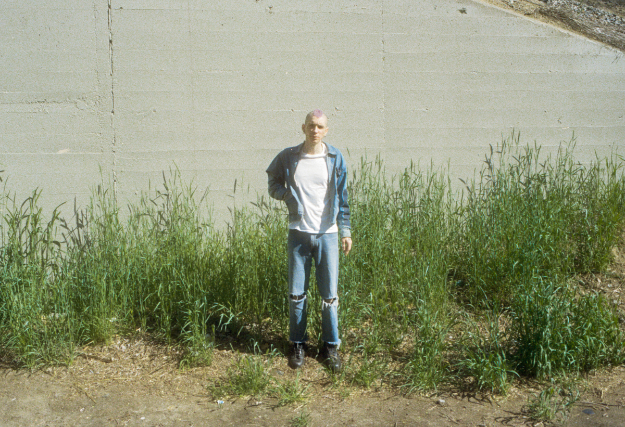Youth Lagoon

In 2016, Trevor Powers shut the door on Youth Lagoon. “I felt like I was in a chokehold,” he says. “Even though it was my music, I lost my way. In a lot of ways, I lost myself.”
Stepping back from the alias, Powers found personal transformation at his home in Idaho and released experimental tapes under his own name (2018’s Mulberry Violence and 2020’s Capricorn).
“My mind has always been a devil,” says Powers. “It tells me terrible things—like I’m worthless, ugly, or broken. It’s like a motel TV stuck on a channel that won’t shut off, with static and endless late-night ads and preachers screaming about the end of the world.”
In October 2021, something changed the channel.
After taking an over-the-counter medication, Powers had a drug reaction so severe it turned his stomach into a “non-stop geyser of acid,” coating his larynx and vocal cords for eight months. “I saw seven doctors and multiple specialists. I lost over thirty pounds. No one could help me,” says Powers. By Christmas, he could no longer speak, turning to text messages and a pen and paper as his only ways to communicate. “I wasn’t sure if I’d ever be able to speak again, yet alone sing,” he says.
“It all felt symbolic in a way,” he adds. “I’d been swallowing fear all my life and now here it was coming back up. I used to think God watches people suffer. Now I know She suffers with you. That changed everything.”
The growth that followed that nightmare narrowed Powers’ focus. Rather than writing about the world at large, he started writing about home. “Family, neighbors, and grim reapers,” laughs Powers. “I’ve always written about far away things. That was my way of running from home. But the best material has been right in front of me this whole time in Idaho.”
With whispers of country, Heaven Is a Junkyard is mutant Americana in a world of love, drugs, storytelling, and miracles—held together by Powers’ voice and an upright piano. “If a lyric wasn’t right, a song wasn’t right,” says Powers, who scrapped two-and-a-half albums worth of material because it “wasn’t honest.”
“Heaven Is a Junkyard is about all of us. It’s stories of brothers leaving for war, drunk fathers learning to hug, mothers falling in love, neighbors stealing mail, cowboys doing drugs, friends skipping school, me crying in the bathtub, dogs catching rabbits, and children playing in tall grass,” says Powers.
Throughout the album, he stitches together a lyrical style that feels both punk and western. “Daddy come home, and Daddy’s on junk,” Powers sings on Idaho Alien—nestled between a saloon-style piano and a rhythmic hiss that sounds like a baby monitor. Prizefighter, the album’s third track, was written while watching a VHS of “Drugstore Cowboy.” Against a gauzy curtain of lap steel guitar and a CR78 drum machine, he explores the bond between two brothers, leaving it undefined what is fact and what is fiction. “Tommy left for war with no goodbye. I never got a chance to ask him why,” he sings.
The Sling, a song Powers refers to as “the album’s core,” is a ghostly and naked piano ballad. We hear each line like a voyeur peeping through a crack in the wall. “On a lonely street, children still play. Families still eat,” he sings. Heaven Is a Junkyard is a phrase Powers wrote down in his journal after watching a neighbor’s farmhouse catch fire. “I wasn’t even sure what those words meant at the time,” he says. “I’m not sure I still do.” But when the album’s title is heard at the end of The Sling, it feels substantial.
“Heaven is a junkyard, and it’s my home,” sings Powers.
Recorded in six weeks with co-producer Rodaidh McDonald (The xx, Adele, Gil Scott-Heron), Heaven Is a Junkyard is a work of absolute devotion. A portrait of the God-haunted American West. And a reminder that there is always love in the tall grass.
“Youth Lagoon was never the chokehold,” he pauses.
“I was.”
Social Links
